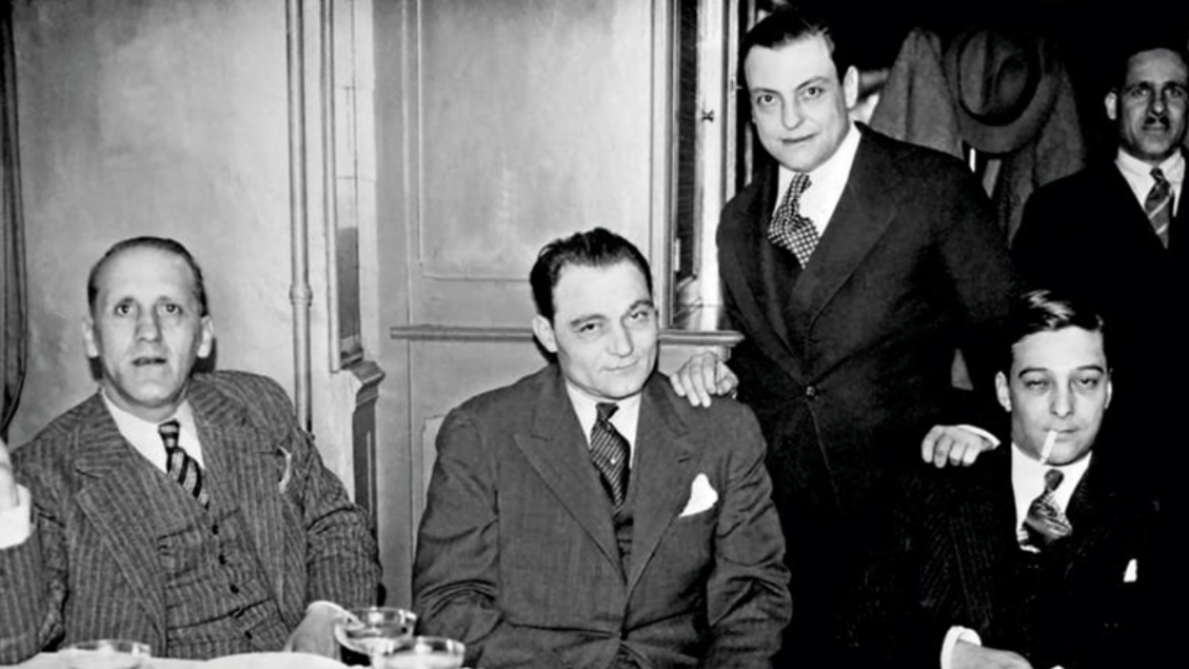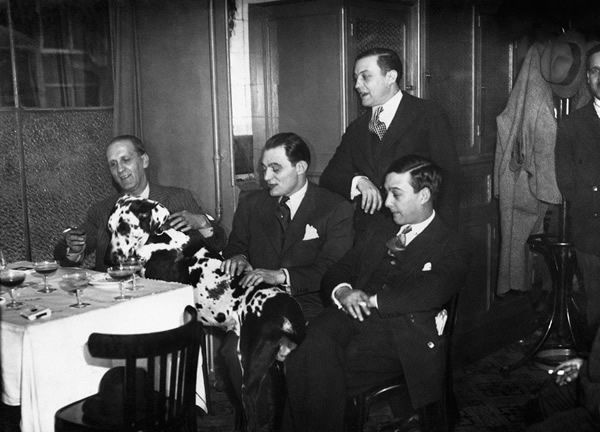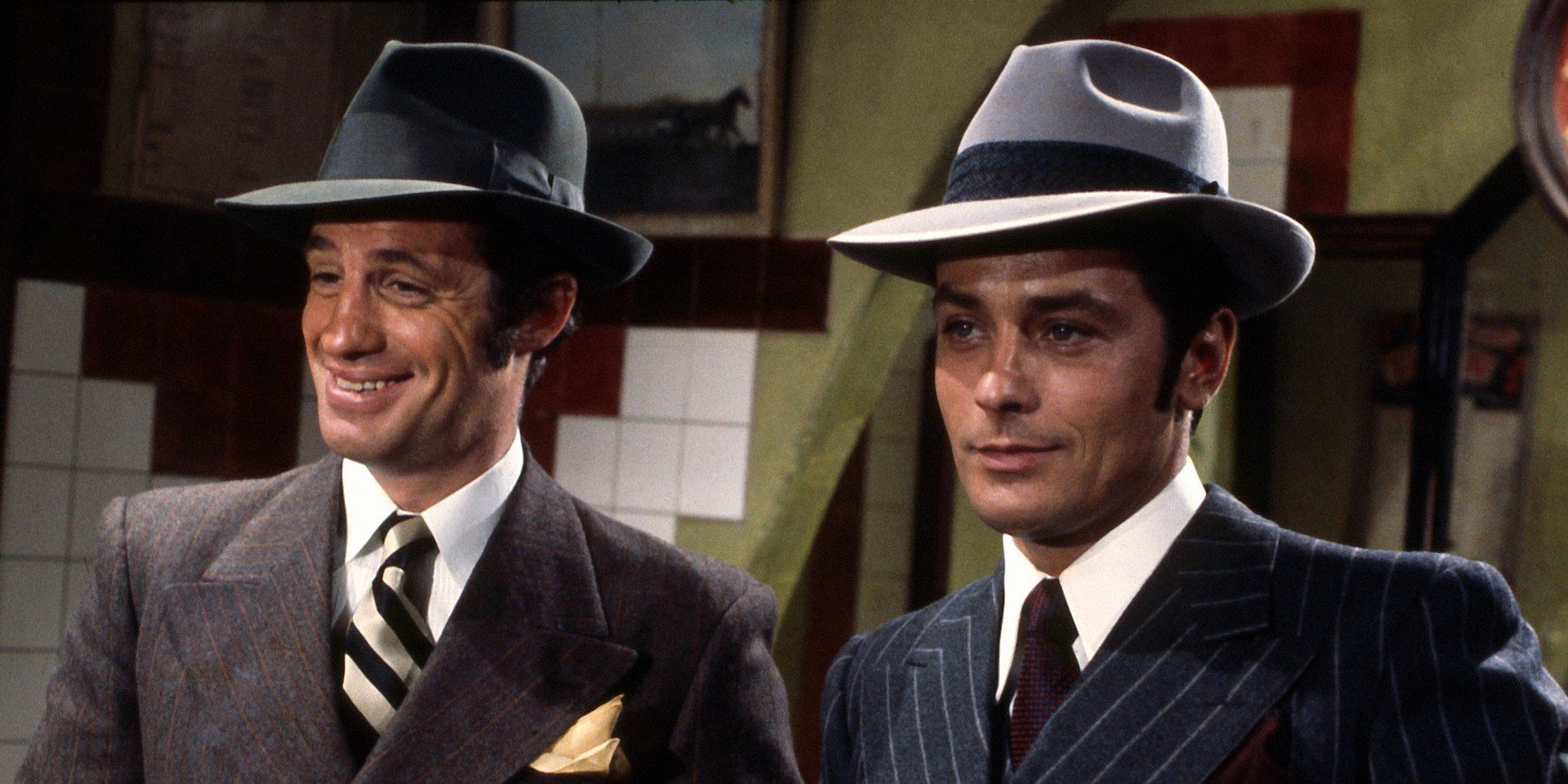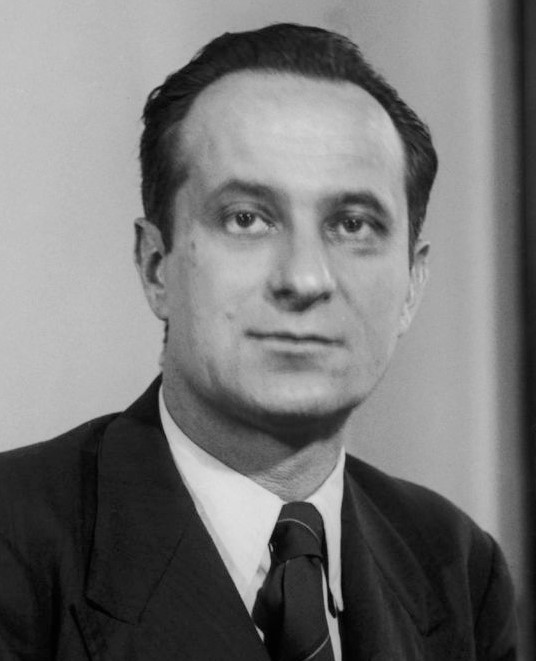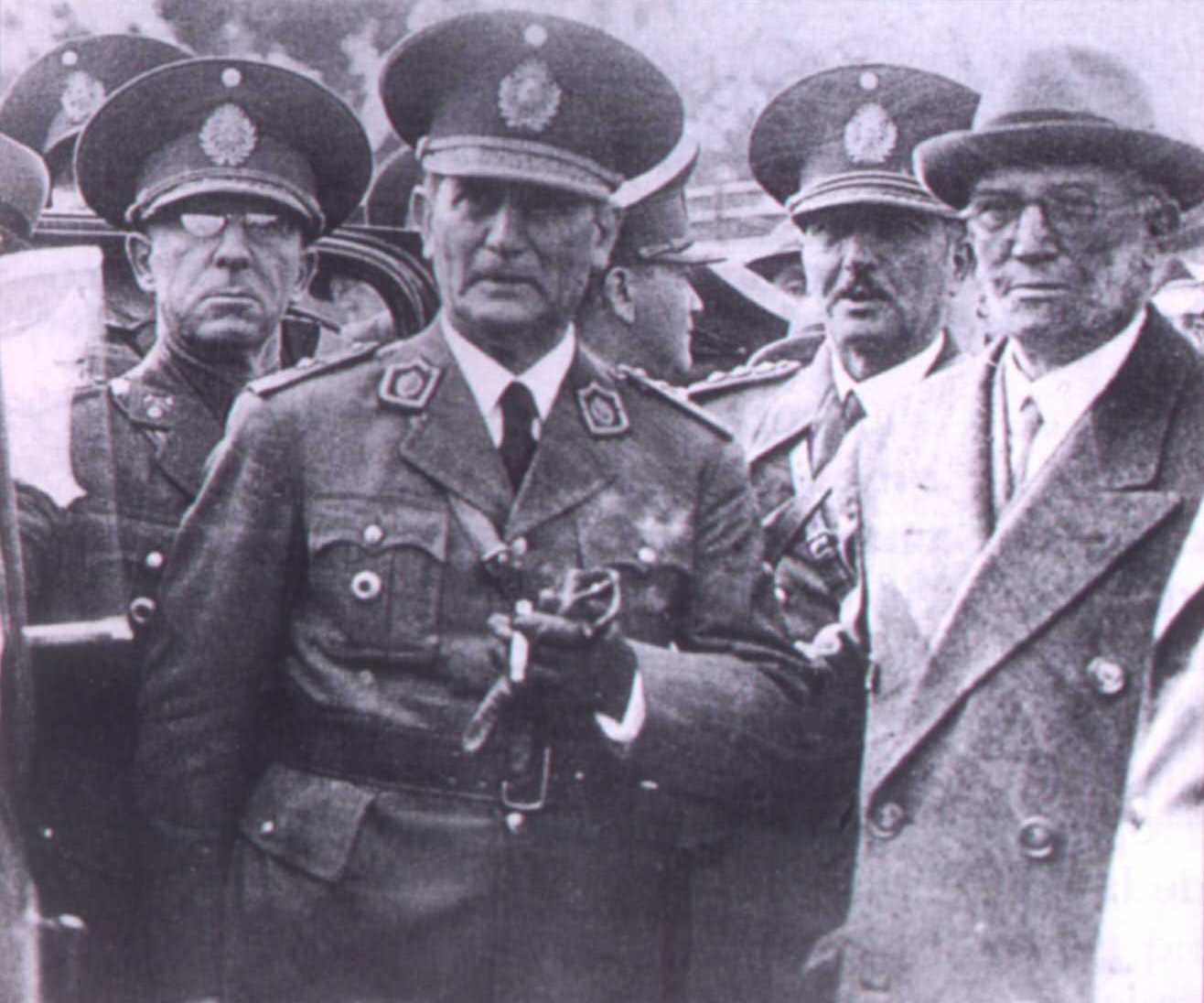Epilogue
One of the consequences of this meeting was an official (and very firm) request by the Quai d'Orsay (1) to the American government to associate French Justice with the legal proceedings underway against the G.I. guilty of common law crimes committed on French territory. At the end of March 1944, an agreement was reached granting the French Republic a status comparable to that of a civil party. The American court, however, retained control of the proceedings and, of course, of the convictions. The presence of a French representative at the execution of a potential death row inmate was also guaranteed.
The adoption of this modus operandi may have been seen as a victory, but it partly confirmed the quasi-extraterritoriality of American soldiers in France. This state of affairs lasted as long as American bases were located on French territory. Today, this status still poses many problems in countries with a permanent American military presence, as the events in Okinawa demonstrate.
The same agreement also defined the principle of official collaboration between the U.S. Military Police and the Gendarmerie Nationale, enabling the organization of joint patrols (the famous "Black and White", in reference to the colors of the uniforms). Although it's not clear whether these patrols were the only reason, the crime rate dropped dramatically in the American soldiers' "entertainment zones", particularly in the famous hostess bars near the Place aux Huiles, which were so well established that their security guards enjoyed an almost cordial relationship with the police. The sight of machine-gun-equipped Jeeps racing down the Canebière at night with the roar of their engines astonished many an old resident of the Vieux Port, but their activities soon became part of folklore.
Interestingly, it was on these patrols that private detective G. Jourdan got his start. Jourdan's first experience. He had volunteered to join the Gendarmerie after the Liberation, and by a combination of circumstances, this assignment undoubtedly determined part of his future career.
The January 11th meeting also led to less official decisions, but just as important, if not more so. Firstly, the French police and gendarmerie were instructed to systematically report to their superiors any complaints or even reports involving American soldiers, including minor offences. This escalation of information usually resulted in a request for the immediate expulsion or redeployment of the individual, rephrased if necessary with all the more insistence as the conflict drew to a close and the accusation was of such importance. In this regard, Mandel is quoted as saying, "Firmness does no harm, nor does cynicism."
In this way, without appearing to interfere, the authorities of the French Republic were able to keep out people who might undermine the French Milieu's control over the more or less illegal activities taking place in Marseille and along the Mediterranean coast. This unholy alliance was quickly dissolved after the end of the war, as Corsicans, Italians and Marseillais came together to defend their interests against North African, then Asian and Russian gangs.
As soon as the war was over, the reconstruction of Marseille's northern districts and the Port of Toulon was carried out by French groups who subcontracted to local companies. Today, the quality of the work, both urbanistic and technical, is well known.
It is also rumoured that the Triad and Yakuza offensives in the USA (notably San Francisco) in the 1960s were a response to the arrival in Japan of some overzealous soldiers transferred from Europe. We know how much Asian organized crime hates upheaval...
The General's office can still be visited at the Palais Longchamp (open every day except Tuesday). Whether this episode inspired him or not, we know today that he was not averse to letting some of his collaborators resort to the help of various underworld circles when circumstances required it (the all-too-famous Service d'Action Civique (2)).
In 1949, deciding to drop all pretense, Blémant resigned from the Police Nationale (decree of June 13, 1949, with the agreement of DST director Roger Wybot). Having obtained authorization to operate the "grands jeux", he invested in the Paris Montmartre, one of Marseille's finest cabarets. With his backing, the ex-commissioner became the owner and eventually controlled more or less directly and completely two other cabarets: the Drap d'or in Marseille and the establishment of the same name near the Champs-Élysées in Paris. This new profession did not prevent him from being awarded the Légion d'Honneur in 1956, for his activities in the Resistance. He then fell out with his Guérini allies over a dark gambling scandal at the "Grand Cercle", an establishment which was subsequently robbed and set on fire on March 30, 1964, possibly on his orders.
On May 15, 1965, at around 7:00 pm, while driving his white Mercedes on the départementale 15 between Pélissanne and Lançon-de-Provence, he was shot twice with a MAT49 machine pistol from a car. The commando was led by René Mondoloni, a natural son of Mémé Guérini (at the wheel), accompanied by Étienne Carrara and Pierrot Colombani (the shooters). His wife Antonia Marti, seated beside him, was only slightly wounded, but Blémant was mortally wounded by four bullets. His funeral was attended by police officers, members of the secret services of various countries and leading figures from the French and Italian underworld, but there were no members of the Guérini clan in attendance.
General Marie-Gustave Meunier successfully reformed the Direction Générale de la Gendarmerie Nationale and became the first Commandant of the Gendarmerie and the Garde Républicaine at the end of 1944. A notorious and influential Freemason, he worked to rebuild the lodges across the Rhine. Awarded the Grand Cross of the Légion d'Honneur, he retired in the 1970s, covered in honors. He then wrote his memoirs, which were a modest best-seller, but make no mention of the interview of January 11, 1944.
By way of conclusion, it should be pointed out that naval officer Jean Gabin, who volunteered for the French Navy as an LST and then Joffre aircraft carrier gunner, was able to witness first-hand the trafficking of all kinds that went on in Marseille during his leave. Disgusted by the effects of heroin on drug addicts, he later insisted on starring in La Horse (directed in 1969 by Pierre Granier-Deferre, original score by Serge Gainsbourg), a film in which he plays a traditional Norman patriarch who energetically opposes drug dealers.
(1) At the time, this was still Rue Michelet and its annex on Quai de la Joliette.
(2) Gaullist secret militia, part agents, part thugs, which got it use in the 60' against syndicalists ...
One of the consequences of this meeting was an official (and very firm) request by the Quai d'Orsay (1) to the American government to associate French Justice with the legal proceedings underway against the G.I. guilty of common law crimes committed on French territory. At the end of March 1944, an agreement was reached granting the French Republic a status comparable to that of a civil party. The American court, however, retained control of the proceedings and, of course, of the convictions. The presence of a French representative at the execution of a potential death row inmate was also guaranteed.
The adoption of this modus operandi may have been seen as a victory, but it partly confirmed the quasi-extraterritoriality of American soldiers in France. This state of affairs lasted as long as American bases were located on French territory. Today, this status still poses many problems in countries with a permanent American military presence, as the events in Okinawa demonstrate.
The same agreement also defined the principle of official collaboration between the U.S. Military Police and the Gendarmerie Nationale, enabling the organization of joint patrols (the famous "Black and White", in reference to the colors of the uniforms). Although it's not clear whether these patrols were the only reason, the crime rate dropped dramatically in the American soldiers' "entertainment zones", particularly in the famous hostess bars near the Place aux Huiles, which were so well established that their security guards enjoyed an almost cordial relationship with the police. The sight of machine-gun-equipped Jeeps racing down the Canebière at night with the roar of their engines astonished many an old resident of the Vieux Port, but their activities soon became part of folklore.
Interestingly, it was on these patrols that private detective G. Jourdan got his start. Jourdan's first experience. He had volunteered to join the Gendarmerie after the Liberation, and by a combination of circumstances, this assignment undoubtedly determined part of his future career.
The January 11th meeting also led to less official decisions, but just as important, if not more so. Firstly, the French police and gendarmerie were instructed to systematically report to their superiors any complaints or even reports involving American soldiers, including minor offences. This escalation of information usually resulted in a request for the immediate expulsion or redeployment of the individual, rephrased if necessary with all the more insistence as the conflict drew to a close and the accusation was of such importance. In this regard, Mandel is quoted as saying, "Firmness does no harm, nor does cynicism."
In this way, without appearing to interfere, the authorities of the French Republic were able to keep out people who might undermine the French Milieu's control over the more or less illegal activities taking place in Marseille and along the Mediterranean coast. This unholy alliance was quickly dissolved after the end of the war, as Corsicans, Italians and Marseillais came together to defend their interests against North African, then Asian and Russian gangs.
As soon as the war was over, the reconstruction of Marseille's northern districts and the Port of Toulon was carried out by French groups who subcontracted to local companies. Today, the quality of the work, both urbanistic and technical, is well known.
It is also rumoured that the Triad and Yakuza offensives in the USA (notably San Francisco) in the 1960s were a response to the arrival in Japan of some overzealous soldiers transferred from Europe. We know how much Asian organized crime hates upheaval...
The General's office can still be visited at the Palais Longchamp (open every day except Tuesday). Whether this episode inspired him or not, we know today that he was not averse to letting some of his collaborators resort to the help of various underworld circles when circumstances required it (the all-too-famous Service d'Action Civique (2)).
In 1949, deciding to drop all pretense, Blémant resigned from the Police Nationale (decree of June 13, 1949, with the agreement of DST director Roger Wybot). Having obtained authorization to operate the "grands jeux", he invested in the Paris Montmartre, one of Marseille's finest cabarets. With his backing, the ex-commissioner became the owner and eventually controlled more or less directly and completely two other cabarets: the Drap d'or in Marseille and the establishment of the same name near the Champs-Élysées in Paris. This new profession did not prevent him from being awarded the Légion d'Honneur in 1956, for his activities in the Resistance. He then fell out with his Guérini allies over a dark gambling scandal at the "Grand Cercle", an establishment which was subsequently robbed and set on fire on March 30, 1964, possibly on his orders.
On May 15, 1965, at around 7:00 pm, while driving his white Mercedes on the départementale 15 between Pélissanne and Lançon-de-Provence, he was shot twice with a MAT49 machine pistol from a car. The commando was led by René Mondoloni, a natural son of Mémé Guérini (at the wheel), accompanied by Étienne Carrara and Pierrot Colombani (the shooters). His wife Antonia Marti, seated beside him, was only slightly wounded, but Blémant was mortally wounded by four bullets. His funeral was attended by police officers, members of the secret services of various countries and leading figures from the French and Italian underworld, but there were no members of the Guérini clan in attendance.
General Marie-Gustave Meunier successfully reformed the Direction Générale de la Gendarmerie Nationale and became the first Commandant of the Gendarmerie and the Garde Républicaine at the end of 1944. A notorious and influential Freemason, he worked to rebuild the lodges across the Rhine. Awarded the Grand Cross of the Légion d'Honneur, he retired in the 1970s, covered in honors. He then wrote his memoirs, which were a modest best-seller, but make no mention of the interview of January 11, 1944.
By way of conclusion, it should be pointed out that naval officer Jean Gabin, who volunteered for the French Navy as an LST and then Joffre aircraft carrier gunner, was able to witness first-hand the trafficking of all kinds that went on in Marseille during his leave. Disgusted by the effects of heroin on drug addicts, he later insisted on starring in La Horse (directed in 1969 by Pierre Granier-Deferre, original score by Serge Gainsbourg), a film in which he plays a traditional Norman patriarch who energetically opposes drug dealers.
(1) At the time, this was still Rue Michelet and its annex on Quai de la Joliette.
(2) Gaullist secret militia, part agents, part thugs, which got it use in the 60' against syndicalists ...

